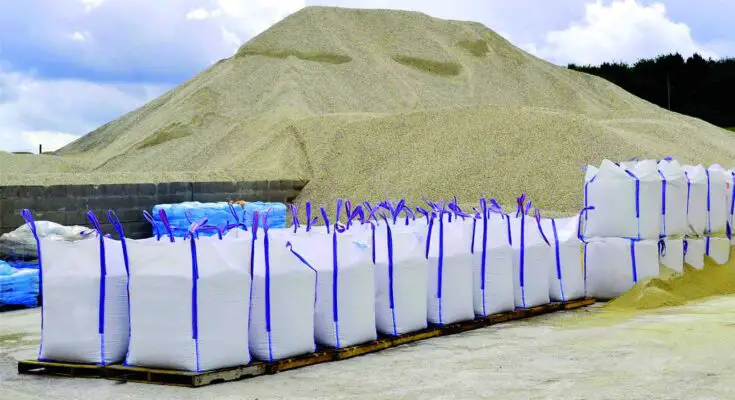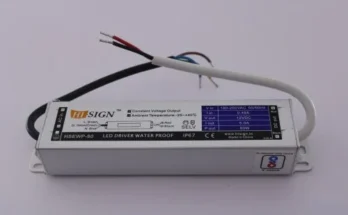In industrial packaging, Flexible Intermediate Bulk Containers (FIBC), commonly known as bulk bags, have emerged as a versatile and efficient solution for storing and transporting various dry and flowable products. Among the leading producers of FIBC bags and flexible intermediate bulk containers manufacturers, FPS stands tall, committed to delivering top-notch products to cater to the diverse needs of farmers, contractors, and industries alike.
What is an FIBC Bulk Bag?
An FIBC bag is an industrial container crafted from flexible fabric specially designed for the safe storage and transportation of dry and flowable products. Typically made from durable polyethylene material, these bags come in varying dimensions, with diameters ranging from 45 to 48 inches and heights between 39 and 79 inches, depending on the specific requirements. FIBC bags are engineered to securely hold up to 4000 pounds of material, thanks to their flexible walls, making them an ideal choice for the storage and transport of dry bulk solids.
Advantages of FIBC Bulk Bags
FIBC bags have surged in popularity in recent years due to their numerous advantages over traditional containers like rigid IBCs, paper bags, and metal drums. Some key benefits include:
1. Improved Safety: Using FIBC bags reduces the risk of worker injuries as they require mechanical means like forklifts, pallet jacks, or hoists for handling, minimizing manual labor.
2. Cost Savings: FIBC bags offer cost-effective packaging solutions as they require less labor for positioning and lifting compared to handling and disposing of multiple paper bags.
3. Economical Packaging: These bags allow for the efficient transportation of more material within the same space, thanks to their increased capacity and reduced tare weight. Moreover, they can be stacked higher, optimizing both shipping and storage space.
Materials Suited for FIBC Bulk Bags
FIBC bags find applications across various industries and are suitable for storing and transporting a wide range of materials, including:
– Chemicals
– Fertilizers
– Fiberglass
– Food Products
– Grains
– Construction Materials
– Seeds
Types of FIBC Bulk Bags
Several types of FIBC bulk bags are available, each designed to meet specific needs:
1. Circular: These bags are basic and made as a tube, losing their shape when loaded, causing bulging in the middle underweight.
2. U-Panel: Slightly more advanced than circular bags, U-panel bags maintain a square shape when loaded by sewing together two pieces of fabric resembling a “U” shape.
3. Four-Panel: Comprising four pieces of fabric for the sides and one for the bottom, these bags resist stretching better than other types, holding a cube shape effectively.
4. Baffle: The best choice for maintaining a cube shape during loading, baffle bags feature additional baffles sewn into each corner, making them easy to stack.
Transport and Emptying
Transporting and loading FIBC bags can be done on pallets or by lifting them from the loops. Depending on the bag style, one or two people may be required. Emptying FIBC bags is straightforward, with the option to use a special discharge spout or simply cut them open.
Conclusion
Flexible Intermediate Bulk Containers (FIBC) have revolutionized the world of industrial packaging, offering a safe, cost-effective, and versatile solution for storing and transporting a wide range of dry and flowable products. FPS, as a leading producer of FIBC and flexible intermediate bulk containers manufacturers, ensures the delivery of top-quality products to meet the unique requirements of customers across various industries. Embracing FIBC bags can lead to improved safety, cost savings, and efficient storage and transportation, making them an indispensable asset in the modern industrial landscape.



